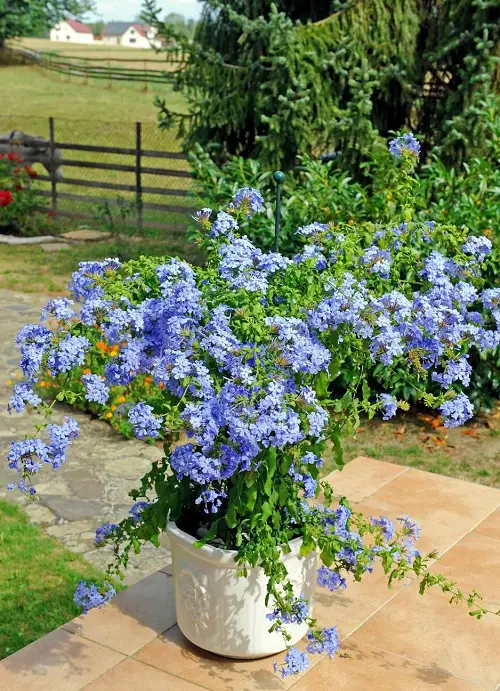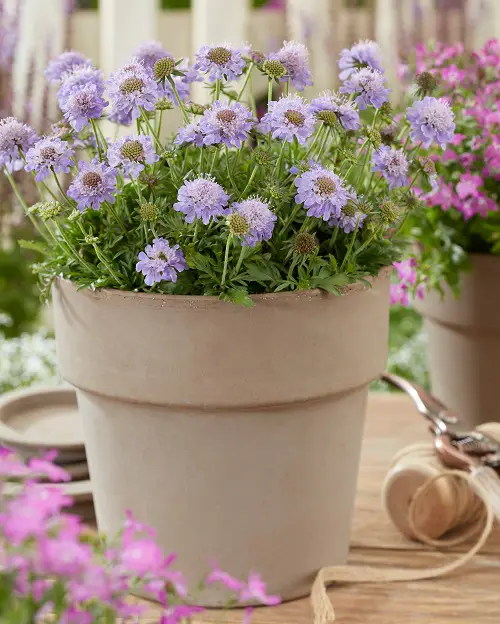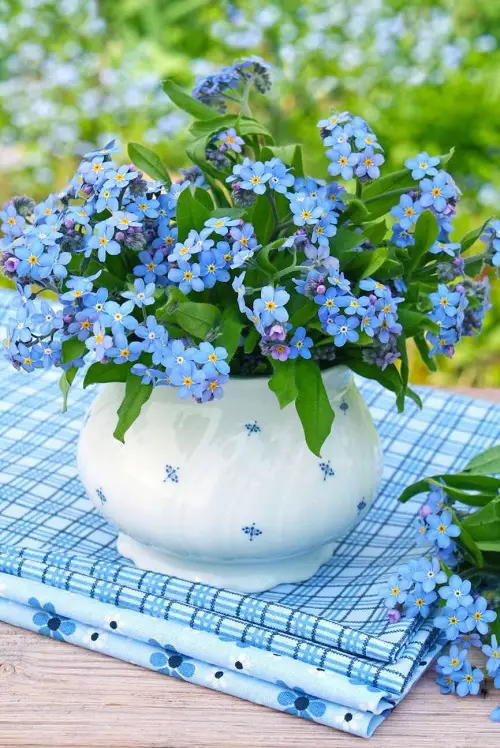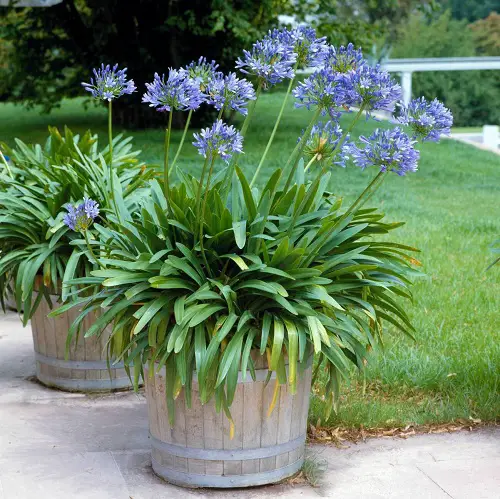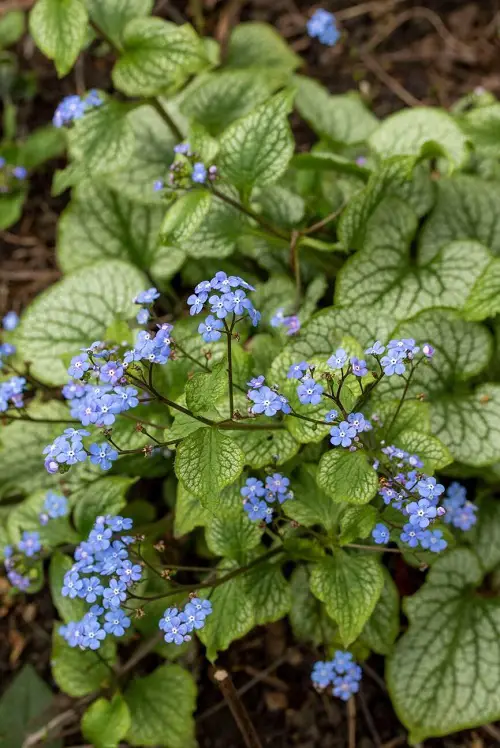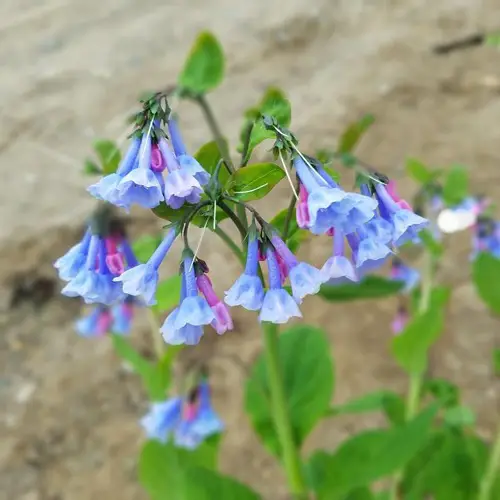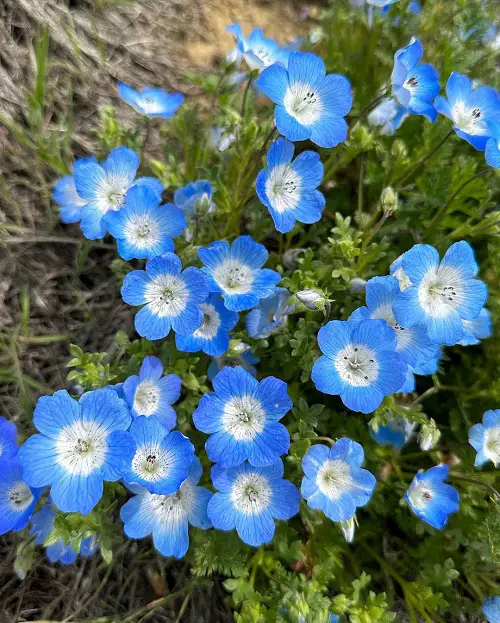These light blue flowers for containers are a perfect fit for tight spaces such as patios and balconies!
The royal and regal elegance of blue color is evergreen, but its slightly faded shade has its own charm, too. Here are the most amazing light blue flowers for containers you mustn’t miss!
Stunning Light Blue Flowers for Containers
1. Plumbago
Botanical Name: Plumbago auriculata
USDA Zones: 9a to 11b
Container Size: 10-14 inches
These light blue flowers for containers require plenty of space because they grow rapidly. Plant in early spring and keep the plant at a spot where it gets plenty of sunlight for plenty of blooms!
2. Hydrangeas
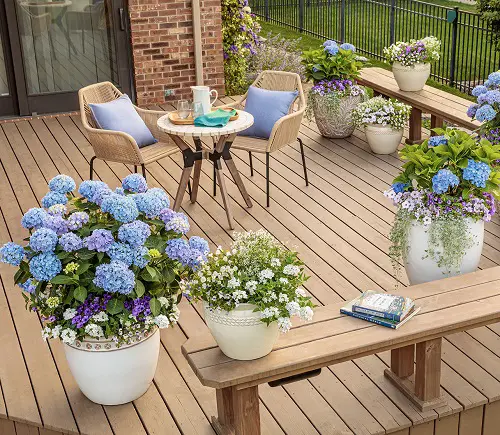
Botanical Name: Hydrangea
USDA Zones: 5 to 8
Container Size: 10-14 inches
Growing hydrangeas in containers is another good option to ensure the beauty of its light blue flowers add a subtle touch of elegance on patios. Nikko Blue, Endless Summer, and PennyMac are some of the best choices.
3. Lobelia
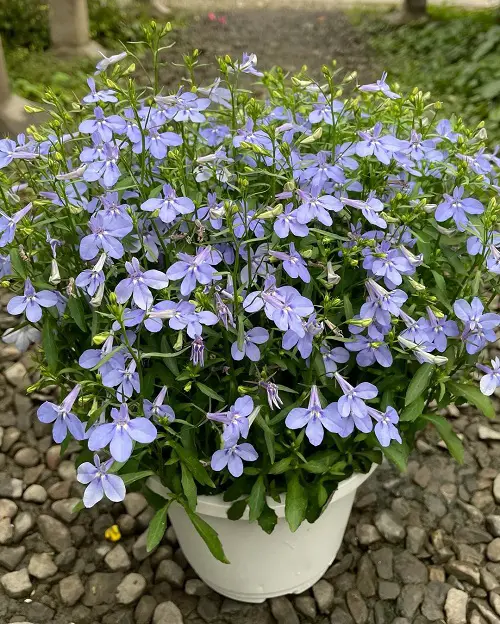
Botanical Name: Lobelia erinus
USDA Zones: 7 to 11
Container Size: 6-8 inches
This light blue flowering shrub is just perfect to be grown in containers or hanging baskets – you take your pick! Just make sure it gets plenty of bright and indirect light all day long for clusters of those light blue flowers!
4. Pincushion
Botanical Name: Scabiosa
USDA Zones: 4a to 11b
Container Size: 12-16 inches
These light blue to purple flowers are container growing champs, the reason they are so versatile to be kept anywhere. All you have to do, is to pick a sunny spot in the home and you are good to go.
5. Forget-me-Nots
Botanical Name: Myosotis
USDA Zones: 3a to 8b
Container Size: 6-8 inches
These light blue perennial flowers look like living light blue bouquets, especially if you will choose a designer container for them. They grow best in well draining soil with plenty of sun exposure.
6. Morning Glory
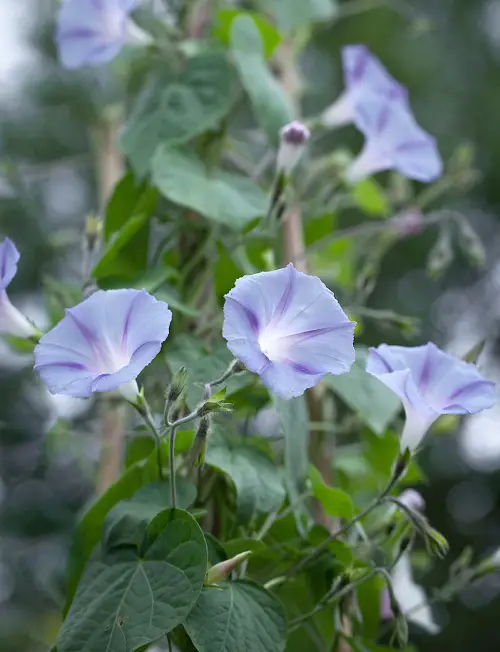
Botanical Name: Ipomoea
USDA Zones: 10b to 11
Container Size: 10–12 inches
If you are in love with trailing plants, the powdery hued flowers of morning glory won’t disappoint! The container growing allows to keep its spread in check, helping you grow it anywhere you please.
7. Delphinium
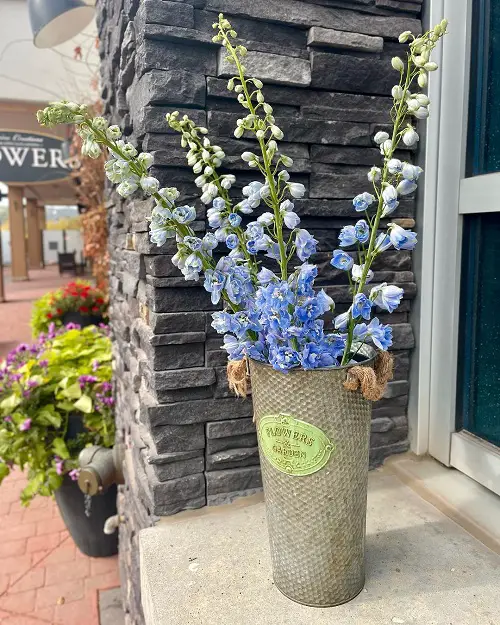
Botanical Name: Delphinium
USDA Zones: 3a to 9b
Container Size: 10-12 inches
The next on the list is a beautiful specimen, with stalks and stalks of sky blue flowers! ‘Magic Fountains Sky Blue,’ and ‘Cliveden Beauty,’ are the best picks for the color you are precisely looking for.
8. Blue Agapanthus
Botanical Name: Agapanthus africanus
USDA Zones: 9 to 11
Container Size: 12-16 inches
The tall Agapanthus (also popular as Lily of the Nile) is a solid choice for growing in pots where those spherical clusters of blue trumpet-shaped blooms can really shine.
9. Jack Frost Siberian Bugloss
Botanical Name: Brunnera macrophylla ‘Jack Frost’
USDA Zones: 3a to 8b
Container Size: 10-12 inches
This one tends to be a bit crowded, but when grown in a container with regular pruning, it can totally work! Just be ready to water it more often and give it plenty of sunlight.
10. Blue Daisy

Botanical Name: Felicia amelloides
USDA Zones: 10 to 11
Container Size: 6-10 inches
These tiny sky blue flowers for containers are also a perfect choice for patios and balconies. Plant other companion plants with the them and bam! You’ve got yourself a colorful little flower party going on!
11. Virginia Bluebell
Botanical Name: Mertensia virginica
USDA Zones: 3a to 9b
Container Size: 10-12 inches
Its drooping bell-shaped flowers can make any container gardens stand out! Simply place it in a shaded spot with an occasional sunlight exposure and watch it bloom effortlessly!
12. Twinkle Toes Lungwort
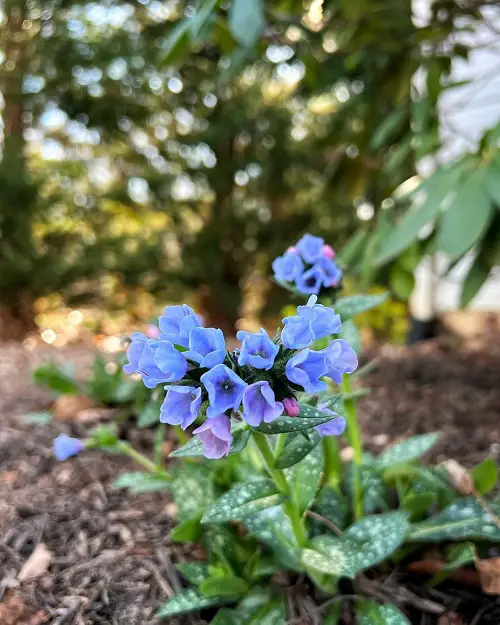
Botanical Name: Pulmonaria x ‘Twinkle Toes’
USDA Zones: 3 to 9
Container Size: 8 to 10 inches
This can be a real showstopper for a shaded patio! Its silver spotted leaves coupled with funnel shaped, light blue flowers that emerge in spring make it even more appealing!
13. Baby Blue Eyes
Botanical Name: Nemophila menziesii
USDA Zones: 8 to 10
Container Size: 6-8 inches
With its low growing habit, this annual plant is perfect for patios or balcony container gardens. Just remember to keep an eye on its watering needs: pots need a little more moisture as compared to yards.


